People of the U: Courtney Smith
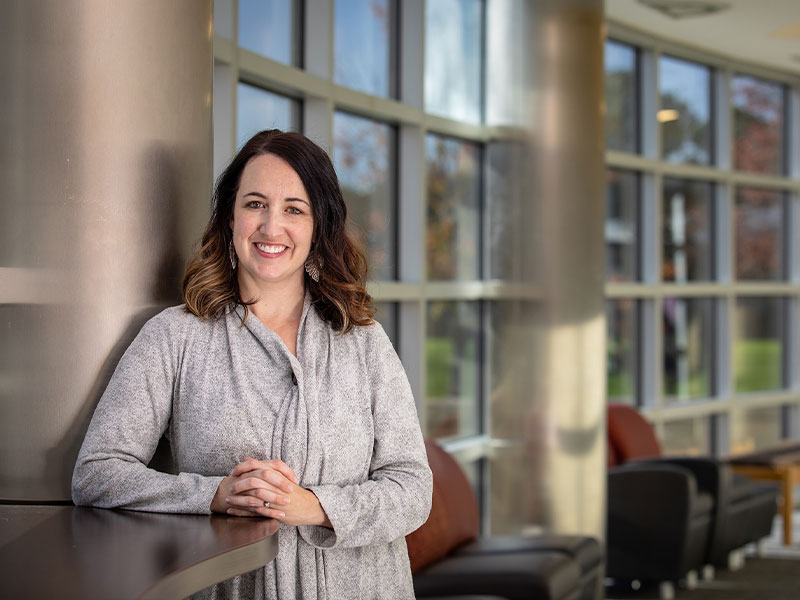
When Courtney Smith mentions the 50-pound king salmon she once caught, it’s certainly no fish story.
The education quality improvement director in the School of Health Related Professions spent the summers of her formative years working on a 29-foot open dory off the coast of Granite Point in Cook Inlet, 40 miles west of Anchorage, Alaska.
The daughter of two educators from Mississippi who decided a bit of “northern exposure” would prove an enriching lifestyle, Smith was born on the tiny island of Adak, the western-most municipality in the U.S. She grew up in Eagle River, Alaska – about 10 miles outside of Anchorage – but her summers were spent on shore – or on a boat.
Smith said she learned the ways of the ocean at an early age after her grandparents purchased a commercial fishing camp in 1985.
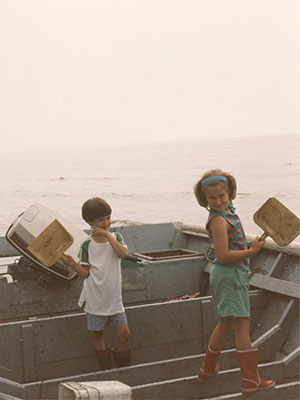
“I was 5 when they bought the camp, and spent my early years cleaning the boats,” Smith said. “Starting around fifth grade, I was allowed out for half a day. By middle school, I was working 12-hour shifts alongside the men.
“My dad is not one to give compliments, but he still claims I was the best first mate he ever had.”
Commercial fishing in Alaska is no pleasure cruise, as Smith can attest. Aside from contending with extremely cold and wet conditions and the occasional squall, she had to stay alert at all times.
“It was a very manual job,” she said. “I had to pull anchors, tie knots, grab lines, pick fish. My dad ran the motor and I did everything else.
“The work didn’t bother me as much as the cold, though. I was always wet to my shoulders from grabbing lines, and my hands would freeze and I couldn’t move my fingers. That was miserable.”
Moreover, it was extremely dangerous.
“There were a lot of lines flying in and out of the boat. When you’re setting a net going 10-15 miles per hour, it’s very easy to get a boot caught if you’re not paying attention.
“If you get caught in a line and pulled overboard, that’s it. You will sink immediately under the weight of your gear. Then there is the risk of falling on an anchor or losing a limb.
“My uncle, who was a seasoned fisherman, lost part of a finger when two boats slammed together. You have to constantly be aware of your surroundings.”
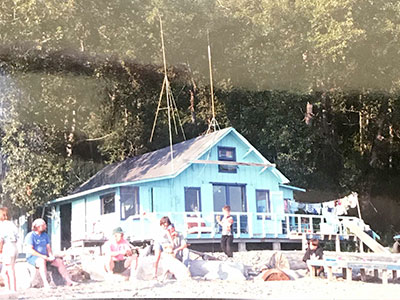
The cabin she and her family fished out of had no electricity and no clean running water – just a single generator that was rarely used. When the tide went out every 12 hours, the gray, rocky, sandy beach turned into a mile of mud more than a foot deep in some places.
Abandoned World War II-era structures dotted the coastline that was only accessible by boat or plane. She and her father shared the beach with bears, foxes and all manner of wildlife that would roam the shores, searching for food. Even in her Eagle River neighborhood, pedestrians had to be on the lookout for moose.
“You really developed a reverence and appreciation for nature and wildlife,” she said. “Circumstances can change quickly if you’re not paying attention.”
The fishing period itself lasted 12 hours, but counting the time spent preparing boats and delivered their catch, it was not unusual for Smith and her family to spend 15-18 hours on the water.
The best haul her team ever had? During one extended 36-hour opening – in a terrible storm with eight-foot seas – they caught 17,000 pounds of fish.
After high school, Smith came to Clinton to attend college at her parents’ alma mater, Mississippi College. Each summer, she continued her trek to Alaska to help her father run the camp. Her final two summers fishing, she also worked another job in Anchorage: Twice a week she would fly to the camp, fish all day, then fly back to Anchorage for work the next day. On her final fishing period in August 2001, she and her father and sister caught 4,000 pounds.
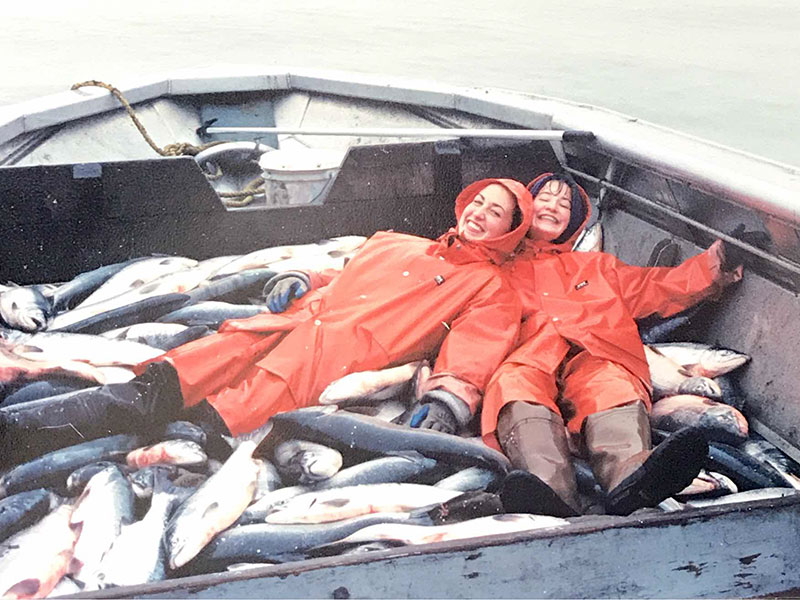
The year she graduated, her parents sold the camp and retired to the Magnolia State, eliminating any reason for Smith to return to Alaska to live. She married a man from Louisiana and the couple moved to Atlanta, Georgia, where Smith worked for Shepherd Center, a spinal cord and brain injury rehabilitation facility.
When Smith and her husband decided to move back to Mississippi, she applied for a performance improvement position at UMMC that closely aligned with her duties at Shepherd Center. In 2010, she moved to the former Nursing Excellence Department, where she worked until accepting a job in January 2015 at SHRP, where she has been ever since.
Kim McGaugh, assistant professor of health sciences in SHRP, who has known Smith since before she came to work at UMMC, said she has always been intrigued by Smith’s experiences in Alaska.
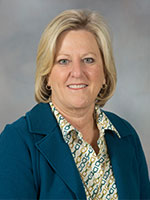
“Courtney is a valuable member of the SHRP team – always quick to show initiative and never hesitates to accept new challenges,” McGaugh said. “I believe her exceptional work ethic and tenacity to see projects to completion are lessons learned from her days on an Alaskan fishing boat.”
Although she said the experience of fishing off Alaska’s shores may not always seem “translatable” to her career in SHRP’s office environment, Smith said her time on the boat has indeed helped shape her work ethic.
“It taught me the value of working hard and not giving up, even when every bone in your body wants to,” she said. “Looking back at how hard it was, how cold it was, how wet, the physical, manual labor, I cannot imagine being back on the boat and lasting even 30 minutes.”
Yet she said she wouldn’t trade her childhood in Alaska for anything.
“I feel blessed to have grown up where I did and to have had the experiences I had,” she said. “Being able to leave my house and hike to the top of a mountain just a few miles away, and skiing every other weekend in the winter, was amazing. I had a beautiful and unique upbringing and childhood, and don’t take that for granted.”
The impact of that upbringing?
“I’m not afraid to do hard work and am a lot stronger than I look,” she said with a laugh.


